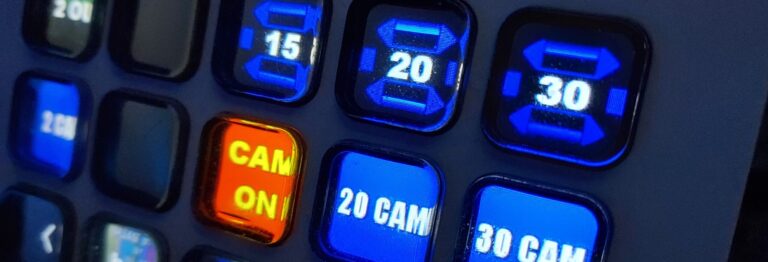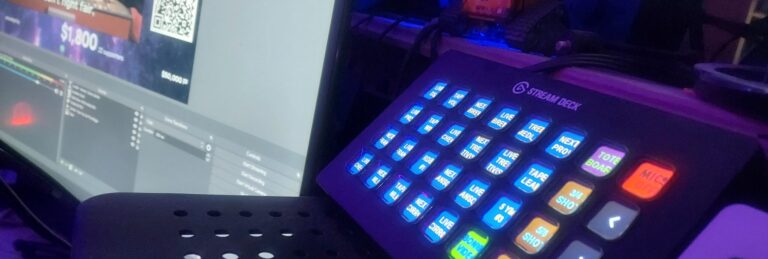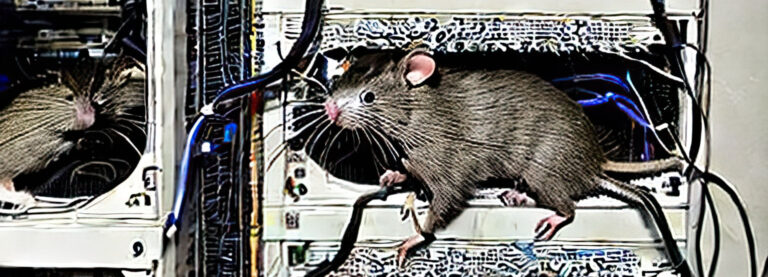This is not what you sign up for when you get your first or second job after landing your journalism degree, or learn how to run a camera or a live truck. This is not what you sign up for at all.
Roanoke, VA television reporter Alison Parker and photog Adam Ward, both of them in their 20s, were gunned down during a morning news live shot. The video is all over Youtube; just look up “WDBJ shooting” and you’ll find numerous copies of it. I watched it once and really don’t want to see it again.
Perhaps even more heartbreaking is the photo of the two in happier times. Keep in mind, I put in my 20+ years in broadcast quite a while back, enough that it now seems like it was another life. And I’m in Arkansas. I never met these people. But I can tell you that I look at this and see the faces of everyone I ever worked with. Young, determined, eager to make good on the unspoken (and, if you watch only national network news, unfulfilled) social contract between the fourth estate and the rest of society – to go out and get the story.
There aren’t words to describe how upsetting it is if I even momentarily transpose those two faces with any of the reporters or photogs I ever worked with. It’s like a punch in the gut. Word that the shooter has been identified as a disgruntled former employee of the station doesn’t make it any easier, and doesn’t make it make any more sense. I could think of numerous faces in that category as well. But none of them who did anything like this.
The broadcast business, at the local level, is difficult enough as it is. You’re already underpaid and overworked. You’re already thrust into a social media spotlight by station management that wants you to engage with the public to enhance their brand. (It used to be that you’d get total strangers talking to you at the grocery store when you’re really just trying to get your ramen noodles and go the hell home after putting in the latest in a solid string of 14-hour days. Now there’s internet-assisted stalking.)
If you’re a photog, you’re now not just a photog, you’re an engineer too – you have to know how to set up the entire live truck, a task for which, only a few years ago, a station engineer used to accompany you into the field; the station management doesn’t want to have to pay that engineer to stick around past five now, so it’s just you. And while you’re doing your live shot, minding your camera and hoping no one messed with the truck, you have to keep an eye out for oh-so-clever souls who are sure they’re the first ones to get behind your talent during a live shot and yell “f___ her right in the p____!”, because that’s so original and so clever.
None of that is in the same league as what happened in Virginia this morning. Reporters and photogs aren’t armed. There’s a reason for that; if you’re asked questions by someone with a camera, it’s journalism at best and perhaps a bit annoying at worst. If you’re asked questions by someone with a gun on their hip, it’s an interrogation. In a worst case scenario, the photog is responsible to some degree for that talent’s safety; in the old days, it was sort of an unspoken thing that the battery pack at the back of the camera, with the full weight of the camera behind it, is probably a more effective bludgeon than a rifle butt. That wouldn’t have worked here, however.
Both station employees were shot dead, and their on-camera guest, a member of the local chamber of commerce, was taken in for emergency surgery.
If this just seems like a weird, one-off incident, it isn’t. Ask my former co-worker Patrick Crawford, a Texas meteorologist who was shot as he walked from the station building to his car one morning. Patrick can tell you it’s not an isolated incident. He’s a solid pro and, honestly, from the time I spent working with him, about as inoffensive a person as you’re likely to meet. (Patrick worked with us at 40/29. I hope he’ll forgive me for dragging his name into this, but his ordeal came instantly to mind.)
And you can ask me. Nearly 20 years ago, at the first TV station I ever worked at, I was one of two people asked to stay on the premises as management fired a particularly volatile employee. They weren’t sure what he would do or how he would respond, given that he had walked out of the building earlier that day, slamming doors and yelling racial epithets about one of our reporters, all because she dared to take “his” truck (which…um…had the station logo on the doors, so I’m pretty sure it was the station’s truck) to go shoot a package. Aside from the station owner and the station manager, every one else was told to go home early…except for myself, and a guy named Danny in master control. Danny was an older gentleman, a great guy who – and I think everyone knew this – had a hip flask of something on his person at all times. (Hey, you try working an afternoon board shift heavy with strip syndicated reruns of Full House and see what it does to you.)
I was tempted to go take a swig of whatever Danny had on him that day before retreating to the production room (which happened to be right by the back door fire escape, considered a likely escape route in a worst case scenario), locking the door, and waiting, phone off the hook and in hand. A little bit of courage, liquid or otherwise, would’ve been welcome. (Spoiler alert: nothing happened, the employee in question left the premises uneventfully when he was dismissed, and filed groundless lawsuits later. On the downside, we were still showing a lot of Full House.)
And that was in the late ’90s, before the modern age of the internet whipping would-be-Unabomber tinfoil-hat shut-ins into a frenzy about “the [liberal/conservative/lizard illuminati overlord] media establishment” snowing everyone over.
Broadcasting is enough of a pressure cooker, for so many of the wrong reasons. Never enough time, never enough money, consultants from out of town insisting that every stinking story has to be a live shot (couldn’t the lady from the chamber of commerce be asked to come to the studio for a more controlled on-set interview?), tight-fisted management forcing increasing reliance on not-ready-for-prime-time wireless streaming tech, internet stalkers…
…all of that is bad enough without someone shooting at you and trying to kill you.
These people were not sent to cover hostilities in a war zone (generally speaking, there isn’t a representative of the local chamber of commerce in combat reporting). They shouldn’t be dead now. Whatever beef their former co-worker had with either of them, this wasn’t the way to settle it.
Stay safe, friends who are still in the biz. For those who aspire…there’s now one – no, two – more reasons to reconsider. The industry is not now what it once was. You used to aspire to Murrow and Cronkite; now it’s TMZ.
And now there’s this.
Edit: I also strongly advise you to read this blog post, which probably explains, far better than I do, how your co-workers in the news biz become your family, and why this is such a raw wound for those of us who have been in that business. EG










+ There are no comments
Add yours